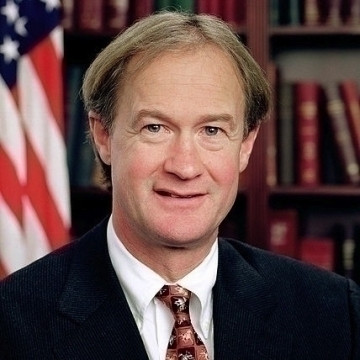Governor Chafee Issues Statement on RI Budget
Wednesday, July 03, 2013
Governor Lincoln Chafee has issued the following statement on today's budget signing:
The 2014 budget that I signed into law today had several encouraging priorities and initiatives, specifically the investment in education, infrastructure and workforce development. Although the municipal aid package surpasses the ones from past administrations, it is still inadequate for our cities and towns.
I am heartened that this year the legislature continued to invest in education and our public schools. I am proud that we have boosted K-12 funding by more than $30 million and achieved a tuition freeze at CCRI, RIC, and URI through $6 million in additional higher education funding.
GET THE LATEST BREAKING NEWS HERE -- SIGN UP FOR GOLOCAL FREE DAILY EBLASTThe $1.25 million for new workforce development programs -- while less than my recommendation -- is still a meaningful commitment to worker training. It will provide invaluable professional experience to out-of-work Rhode Islanders and help match workers to the right companies.
In Rhode Island, the Governor must submit a budget proposal based on November revenue estimates, and the General Assembly works with revised May’s figures. This year the General Assembly saw a revenue shortfall from November, and many difficult choices needed to be made.
Several of my proposals were altered such as my recommendation to lower the state’s corporate tax rate from 9% to 7% over three years. Unfortunately, because of the revenue shortfall, this was not enacted.
Another proposal involved municipal aid. As you know, I have been working to reverse the damage done by the past administration to municipalities and the Rhode Island property taxpayer. I was discouraged that the General Assembly decreased the amount but assistance will still go to ailing municipalities.
A new municipal road and bridge revolving fund that will provide $7 million in loans to cities and towns adds a burden. There are costs associated with borrowing, which some municipalities cannot afford. Also, as mayor I never issued a bond that exceeded the “useful life” of a project.
Similarly, the $.10 toll for the Sakonnet River Bridge was not what I had proposed. I believe the General Assembly and my administration will join together, and, through a study, will come up with a proposal that helps bring in a revenue stream at a level that can support the Rhode Island Bridge and Turnpike Authority’s assets. I remain optimistic that a reasonable solution will be reached. The reality is that the money must come from somewhere. I do not want to see another bridge completely replaced – at great cost to taxpayers – because of a lack of maintenance. This happened with the old Sakonnet River Bridge.
Finally, much debate centered around 38 Studios – specifically, whether the state should make our moral obligation bond payments. I have been unequivocal in my belief that we must honor the moral obligations of the State. If the payment was not made, it would have brought severe consequences – both immediate and long-term – for Rhode Island’s finances. While it is difficult to put an exact dollar amount on how much our failure to pay could cost, evidence suggests it could likely exceed $100 million, through increased borrowing costs, a lower credit rating, and potential litigation. Beyond near-term costs, there is the broader and longer-lasting question of reputation.
I am therefore encouraged that the General Assembly voted to make the first scheduled bond payment. Last week Moody’s removed the state’s debt from review for downgrade. We have sent a clear message to the investment community that Rhode Island honors commitments. Those far beyond Rhode Island’s borders will take notice of this fact, and it bodes well for our credit rating, borrowing ability, and reputation.
This is by no means a perfect budget; it was an exercise in compromise, collaboration, and cooperation. While I have expressed my disappointment in some aspects, I also see a number of measures that will continue moving us forward. This is also about preserving Rhode Island’s positive image as a state that is open for business – where certainty, predictability, and stability guide our state government. Rhode Island continues on the path of making our state a better place to live, work, and raise a family.



